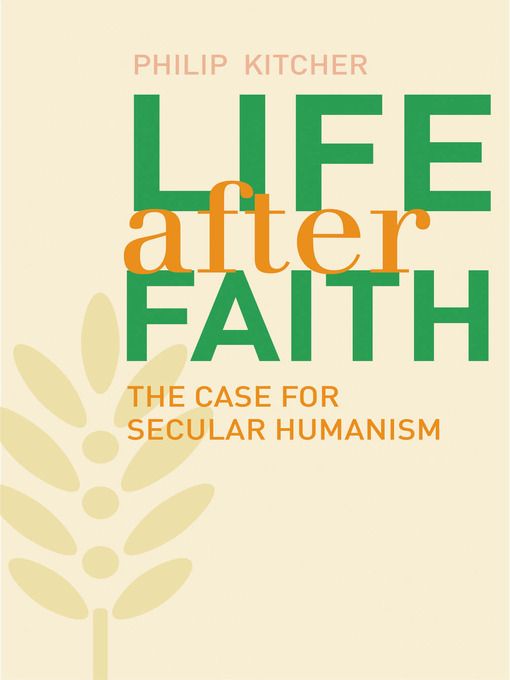
Life After Faith
The Case for Secular Humanism
کتاب های مرتبط
- اطلاعات
- نقد و بررسی
- دیدگاه کاربران
نقد و بررسی

October 6, 2014
Yale's annual Terry Lectures have yielded another elegant book that addresses contemporary concerns. Kitcher's well-organized presentation ranges widely in drawing together sources from literature, philosophy, and the sciences to respectfully make a persuasive case that a secular outlook on life can produce value, meaning, and solace, all functions that religion has traditionally filled. He reasons sans broadsides, finding that religion is not so much violent or evilâas many of today's atheists argueâas it is improbable and, more important, unnecessary. He is a kind critic of religion, conceding that "refined religion," the highest form of belief and practice, has at least the advantage of being better organized to act for human improvement, since there are as yet no numerous or vast bodies of secular humanists doing disaster relief. (Give it time, he suggests.) Kitcher's real strength is his sensitivity to human suffering and mortality, and the ways in which those concerns must be addressed by a robust secular ethic.

November 1, 2014
The subtitle of this collection of Kitcher's (John Dewey Professor of Philosophy, Columbia Univ.; Preludes to Pragmatism) Terry Lectures forms the aim of this project, an articulation and defense of a secular humanism that is broader than militant atheism. One can divide Kitcher's strategy into two parts. First he separates religion into two types--unrefined and refined. The former involves a literal adherence to the tenets of a religion (which he quickly dispatches as fiction), while the latter relies on symbol and metaphor to point to an otherwise ineffable transcendent. This procedure has the curious effect of placing such sophisticated theists as Marilyn McCord Adams and Peter van Inwagen in the unrefined camp, but Kitcher's focus is on refined religion. Here again the case is two-fold: one argues for the ineffectualness of the transcendent in establishing reasonable judgments, and the other is a series of statements that secular humanism can provide a basis for those things that religion (broadly conceived) has long been seen as a bulwark--ethics, values, and meaning. While tightly reasoned, this set of lectures is also lively and engaging. VERDICT This title makes for a fine touchstone for those interested in the discussion of the function of religion in a secular society.--James Wetherbee, Wingate Univ. Libs., NC
Copyright 2014 Library Journal, LLC Used with permission.

























دیدگاه کاربران